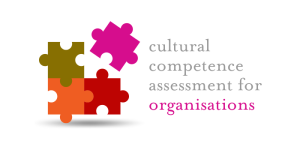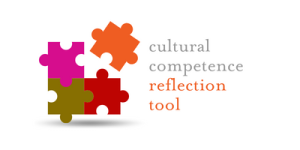Cultural Competence Tools
What is Cultural Competence?
Cultural competence refers to the provision of accessible, responsive, and inclusive services to people from migrant and refugee backgrounds. It is about valuing cultural and linguistic diversity and addressing the needs of different communities in all aspects of service planning, design, and delivery. For organisations, this means having systems, policies, and practices in place to support workers to engage more effectively with migrant and refugee populations.
At the individual level, cultural competence involves:
- self-reflection on your own personal, professional, and organisational culture;
- recognising the power relations involved in cross-cultural work;
- considering the other person’s socioeconomic context, including migration and settlement, and applying an intersectional lens to your work;
- effective cross-cultural communication; and
- working collaboratively with individuals, communities, and other service providers.
Cultural competence is a process, not an end point.
We have designed two Cultural Competence Reflection Tools – one is an assessment for organisations and the other is a reflection tool for practitioners. These tools can be used in conjunction with each other.

Cultural Competence Assessment for Organisations
The Cultural Competence Assessment for Organisations (CCAO) tool is designed to help community and health care organisations assess and improve their cultural competence. The CCAO focuses on assessing cultural competence through policies, systems, and practices at an organisational level. By improving cultural competence, organisations make their services more accessible and responsive to the needs of migrant and refugee communities, resulting in better client outcomes. They also create a more inclusive workplace, which fosters innovation and contributes to staff satisfaction.

Cultural Competence Reflection Tool
The Cultural Competence Reflection Tool (CCRT) is designed to provide workers with an indication of their level of cultural competence at the individual practitioner level. CCRT looks at workers’ attitudes, beliefs, and skills to assess individual cultural competence. It provides an opportunity to explore their cross-cultural skills as well as their attitudes and understanding of issues related to culture, migration, and communication. The tool helps to identify strengths and areas that might require further development.
Comparison of the Cultural Competence Tools


